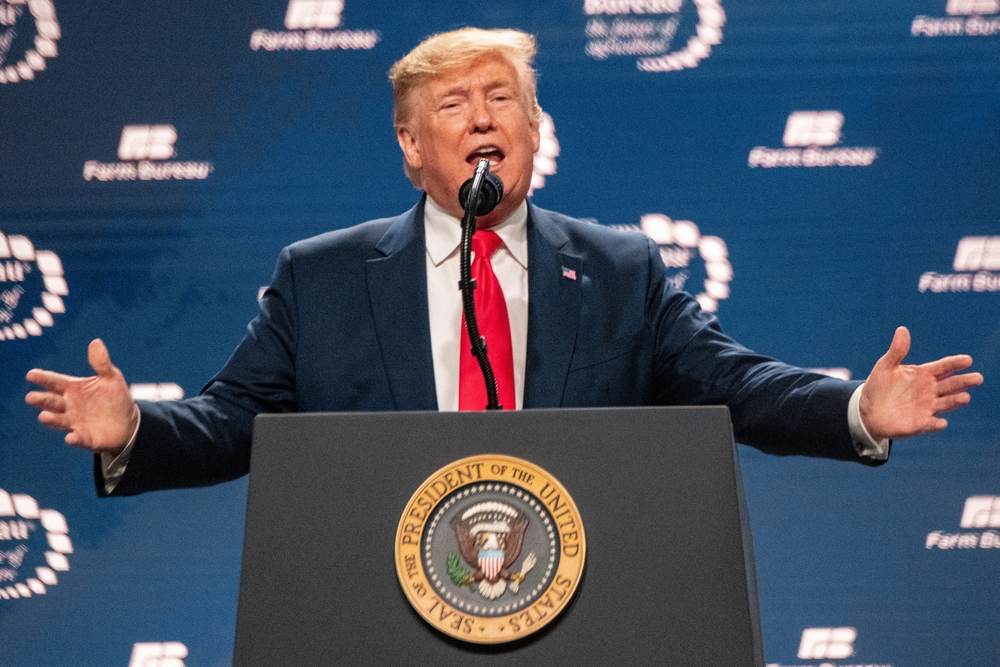
Love him or hate him, Donald Trump is a unique figure. He is a businessman first, a politician second. Crucially, his worldview was forged in real estate deals, not policy briefings. To understand his moves, you must understand his wallet. Indeed, his psychology is rooted in leverage, branding, and debt. Here is how his money mindset dictates his every decision.
Branding Is More Valuable Than the Product
Trump learned early that the name sells the building. Essentially, the gold letters add the value. Consequently, he applies this to politics. He prioritizes headlines over details. Therefore, the “brand” of the policy matters more than the mechanics.
He knows attention is currency. If people are talking, he is winning. He treats his political identity like a luxury license. It must be loud, visible, and unmistakably his.
Debt Is a Tool, not a Burden
Most of us fear debt. Conversely, Trump uses it as a weapon. In business, he used loans to scale while risking other people’s money. He views national debt and trade deficits through this same lens. In his mind, leverage is power.
He is comfortable with financial chaos. He believes he can always renegotiate. This approach terrifies economists but feels natural to a developer. He assumes the other side will fold first.
Loyalty Is Transactional
In the business world, loyalty is about profit. Specifically, you stick with who makes you money. Similarly, Trump views political alliances this way. If you aren’t an asset, you are a liability. He cuts losses quickly.
This explains his revolving door of staff. Ultimately, it isn’t personal; it’s business. If the ROI (Return on Investment) of a person drops, they are fired. However, he expects total fealty in exchange for his proximity.
The Media Is Free Advertising
Trump famously claimed he rarely spent on ads in early campaigns. He knew controversy generated free airtime. Therefore, he manipulates the media cycle like a market. He says something shocking to dominate the news cycle.
This saves millions in campaign funds. Furthermore, it sucks the oxygen out of the room for opponents. He understands the economy of attention better than anyone.
Negotiation Is a Zero-Sum Game
In real estate, for me to win, you often have to lose. As a result, Trump rejects the “win-win” philosophy. He wants to crush the competitor. This drives his foreign policy and trade deals.
He approaches nations like rival contractors. He threatens, bluffs, and squeezes. He simply wants the better deal on paper. Diplomacy is just a high-stakes board meeting to him.
Real Estate Value vs. Human Value
He evaluates things by their appreciation potential. Properties, golf courses, and people are all assets. He praises people who are “winners” (high value). On the other hand, he mocks “losers” (low value). It is a cold, appraisal-based worldview.
Empathy rarely enters the equation. Instead, the bottom line rules. This connects with voters who want a ruthless CEO. However, it alienates those who want a compassionate leader.
The Art of the Deal Never Ends
His fortune shaped his brain. You cannot separate the money from the man. In fact, every tweet, every rally, and every policy is a transaction. He is always closing the deal. The eternal question, then, is whether that deal benefits the country or just the brand.
What is the ultimate impact of this business mindset on the nation? Share your thoughts below.
What to Read Next…
- 11 Psychological Biases That Could Be Sabotaging Your Finances
- 8 Signs Your Anxiety Is Showing Up in Your Finances
- 6 Money Myths That Women Pass Down Generations
- The Trump Effect: 7 Raw Truths About Student Loan Repayment in 2025
- 7 Money Traps Women Fall Into Without Realizing
The post Trump’s Money Mind: How His Fortune Still Drives His Every Decision appeared first on Budget and the Bees.





